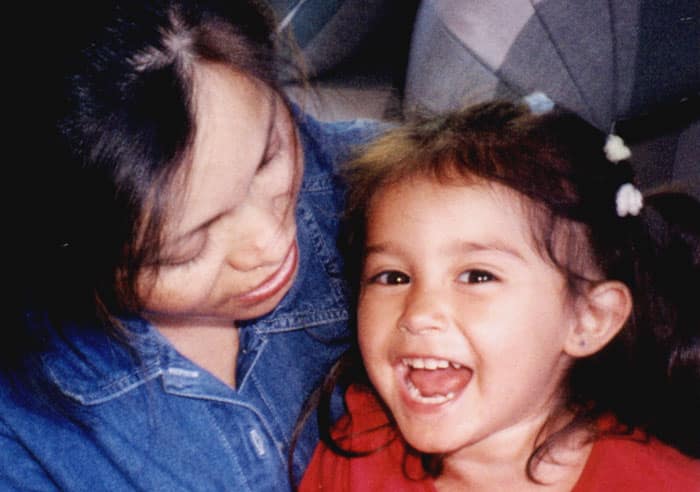 Sometimes children love to share. A child passes out a cupcake to each friend at a party; offers his baby sister the toy he knows she’ll love; or asks grandma to buy something for her siblings in addition to her own gift when they are at the toy store together.
Sometimes children love to share. A child passes out a cupcake to each friend at a party; offers his baby sister the toy he knows she’ll love; or asks grandma to buy something for her siblings in addition to her own gift when they are at the toy store together.
But sometimes…children are not so generous or loving. All children have trouble sharing at times. A child might hoard all of the “best” sandbox toys for herself, or run to snag the best seat in the car before his siblings get there.
What makes the difference between the generous moments and the not-so-generous ones? My eleven-year-old stepdaughter shared a good insight that I think applies to both children and adults: “When I’m in a good mood, when I’m feeling good, I want to share. If I’m mad at someone or feeling bad, I don’t want to share.”
When children feel connected and at ease, their generosity bubbles up, and their warmth and thoughtfulness can be infectious. Yet, underlying tensions and fears can make it difficult to share.
Address the Urgency
When my stepdaughter was younger, she often had difficulty sharing with her little brother. When he had a toy in his hand, she would grab it from him and say, “I just want to see it!” Her brother would start to cry.
I would move in, put my hand on the toy my daughter had grabbed, and gently tell her that she needed to give it back—she could have it when he was done. She would resist; I would repeat the limit she needed to return the toy to her brother. She would begin to cry, and sometimes storm off, throwing the toy to the ground.
One day, she saw something in her brother’s hand and said she wanted to see it. She didn’t lean in to grab the toy, but I could see the desperation in her eyes. “I really want it,” she said.
 I told her, “You can’t have it yet, but you can tell me how bad you want it and I’ll stay with you until he’s done.”
I told her, “You can’t have it yet, but you can tell me how bad you want it and I’ll stay with you until he’s done.”
“I only want to see if for a minute.Why can’t I just see it, I’ll give it right back!” she yelled. I stayed close and listened as she told me how much she wanted and needed it.
Nowadays, after many of these listening sessions , my stepdaughter isn’t so urgent about wanting to “see” the things her brother has. When he brings a new toy into the house, she can appreciate the object without having to hold it.
Often the upset a child shows us is not about the thing he or she wants so badly. Addressing the urgency, the desperation, and the wanting can be more powerful and useful than just making children take turns. As we listen to children’s upsets about having to wait for what they want, the listening heals the hurt that made it hard to be generous in the first place.
Let’s Be Together While You Wait
My son and his cousin love playing together and these days they can play together for hours without conflict. But it wasn’t always that way.
One day when they were younger, they were playing with a toy grill set. My son had been playing with the grill fork for a while and his cousin was getting tired of waiting for it. She asked him for it, but he wasn’t ready to give it up. She looked at me and said, “But he’s had it for a long time now.” I told her she could have it when he was done. Tears started to trickle down her face, and I sat with her as she cried.
When she was finished, I told her we could be together while she waited. “What would you like to do?” I asked.
Her eyes lit up—now she had her aunt all to herself and the interest in the grill fork vanished. Offering your loving attention can help a child cope with the wait once they are done letting out their upset. A few minutes later, my son came over and handed her the grill fork. He too wanted to be where the attention was.
The Power of Laughter can Change the Course of a Playdate
One mom I know told me her daughter and a friend often ran into some trouble sharing during play dates. From the other room, the mom would hear her daughter say, “I want the necklace with the blue beads!” And her friend would yell back, “No, I want that necklace!”
One day the mom decided to try intervening playfully. She went into her daughter’s room and said, “No, I want all of the jewelry!” And she scooped up a few pieces and ran into the living room. The girls ran after her, giggling, and chased her around the house. “No!” they chirped in unison. “We get all of the jewelry, not you!” The girls became a united force against Mom the Jewelry Thief.
After a few minutes running around and laughing, the girls were able to go back to playing and sharing again. Their conversation changed: the mom heard them say, “You can have the necklace first and I’ll wear it when you’re done,” and, “Do you want this necklace? I can wear this one.”
Infusing laughter into a situation when children are having trouble sharing can break the tension that keeps children from feeling generous.
Listen to Children’s Solutions
Occasionally, both of my children would want to use the same one-of-a-kind bowl or cup, like this one purple glass we had. One day my son started to cry as his sister got the purple glass from the cabinet. I said, “Your sister gets to use it now, you can have it another time.” And I listened to him cry.
The next day at breakfast, when both kids were in a good mood, I had them brainstorm some solutions: “Let’s come up with a good solution of how the two of you can use this glass.”
My stepdaughter suggested that she use the cup on the three days a week that she’s at our house, and my son could have it all of the other days. My son preferred to switch off every other day. As they brainstormed solutions, they talked about what was and wasn’t fair. Although we didn’t have time that morning to come up with a solution both children liked, the purple glass was never a source of tension again.
Creating a forum where older children can talk and come up with solutions on their own can help them work through some of the challenges of sharing.
When it’s Time to Let Go
Sometimes a child has difficulty parting with a particular toy. He wants to play with it day after day and has trouble passing it on to someone else. In that case, we can give the child a hand by gently creating the separation he fears. When he comes back for the red scooter a second day in a row, you can say, “Today, it’s time to offer the scooter to someone else.” This can bring up lots of feelings. We may have to listen to some tears and help him hand it over, but most likely his day will go better once he’s had a chance to cry about giving up the toy.
All children have trouble sharing at some point, and sometimes it takes many tears or a little laughter before a child can feel warm and flexible enough to share happily. As we work through it with them, it can help to recognize that these challenges are not just painful moments to avoid; they are opportunities to listen to children, to re-connect, and to empower them as they navigate the difficulties and joys of relationships with friends and family.
~Julie Johnson is a Certified Parenting by Connection Instructor. You can visit her Parent-Child Connection website for updates on her current offerings.
